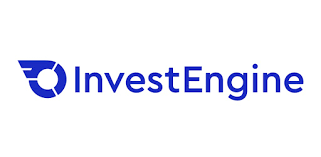As of July 2023, soaring inflation, unmatched by the interest rates on savings accounts, means cash is losing its buying power. Even if you choose the savings account offering the highest returns, your money may still lose its value over time.
Investing in shares can help your wealth grow at the same rate or faster than inflation. However, you must remember that buying and investing in shares comes with risks, and you could get less back than you put in. That’s why you must conduct thorough research and consult a financial advisor before making significant investment decisions.
Discover the UK's leading investment platforms, whatever your investment goals. Click on a provider below to get started!
What is a share?
A share is a piece of equity ownership in the capital stock of a company listed on a stock market. The value of a share is calculated based on the demand for the company's stock and how much investors are willing to pay for the company. For example, if Company A is worth £50 million and has 25 million shares, then each share of Company A is worth £2.
Most of the time, you will find that the value of a share is listed in pence and not pounds. Returning to our Company A example, one share would be listed as 200p instead of £2. There are a few reasons for this, including:
- Improving accuracy.
- Reducing the risk of errors.
- Making the share price easier to read - 106 is easier to read than 1.06.
When you buy a share, you gain ownership of a part of that company. The Financial Times Stock Exchange 100 Index, also known as the FTSE 100, lists the top 100 companies with the highest market capitalisation on the London Stock Exchange (LSE). The companies that make up the FTSE 100 are reviewed every three months, and at each review, some companies will exit, and others will enter, impacting share prices. As of July 2023, some of the trading names on this list include AutoTrader, Coca-Cola, Rolls Royce, and Natwest.
What is the difference between shares and stocks?
The terms "shares" and "stocks" are often used interchangeably. Whilst both refer to ownership interests in a company, there are some differences between the two.
- Shares: Shares represent individual units of ownership in a company. Shareholders who purchase these shares become partial company owners entitled to certain rights, such as voting rights, dividends, and a share in the company's profits.
- Stocks: Stocks represent a collection of shares. For example, when people mention "investing in stocks," they typically refer to buying and selling shares of different companies to build a diversified investment portfolio.
How can I buy shares?
Long gone are the days of handwritten shares on sheets of paper, where investors traded these with other investors in coffee shops. Thanks to technology and the internet, there are several ways that you can purchase shares online, including:
- A stocks and shares ISA.
- A self-invested personal pension (SIPP).
- An online share trading account.
- An app-based trading platform.
One of the most convenient and cost-effective ways to buy shares is through an investment platform. After signing up, you can browse the list of shares available and choose the ones you want to buy and how many. An investment platform provides a low-cost, one-stop shop for purchasing, selling, and monitoring your investments.
Some of the most prominent and award-winning trading platforms include:
You should note that some platforms will only allow you to invest in companies listed on the London Stock Exchange, while others let you buy and sell shares on markets worldwide. So if you want to buy international shares in American companies such as Apple or Microsoft, you must sign up for a global investment platform.
You will also find that some platforms offer AIM-listed shares. These specialised units of the London Stock Exchange (LSE) focus on smaller companies. Buying shares in these companies can be risker than those listed on the main FTSE 100 list; however, they are often seen as attractive because they offer tax benefits.
Opening an account
No matter which platform you choose to buy shares, you must first register and open an account with them. This process may differ slightly between platforms; however, the basis remains the same.
To open an investment account to buy and hold your investments, you need to provide details such as:
- Your full name.
- Your address.
- Your National Insurance number.
- Your debit card details.
Some platforms will also require you to pass an identity check.
You will find that most reputable firms do not allow using credit cards to invest. Although it is not illegal, buying and investing in shares with borrowed money is a risky business. If you don't have enough money to invest, you'll likely pay a lot more in high interest on your credit card balance than you could gain from your investment in stocks.
If you are encouraged to buy specific shares or use a particular financial service with your credit card, it is likely a scam.
Choosing shares
After successfully creating your account, you can start investing by purchasing your first set of shares. It is essential to conduct thorough research to ensure that you make informed investment decisions.
Follow the beginner-friendly steps outlined below to help you choose the right type of shares to buy.
Determine your main investing goals
Your goals will determine the type of shares you buy. Income-oriented investors focus on buying shares in companies that pay dividends regularly and support them. Capital appreciation seeks out companies in their early growth stages. These investors are willing to take higher risks to secure significant gains.
Find companies you trust and understand
Would you board a flight if you didn't know the final destination? Of course not, and the same principle applies here. When purchasing a stock, you're becoming a part-owner of a business. To avoid potential failure, it's crucial to have a clear understanding and trust of the business beforehand.
Research how the company is keeping up its competitive advantage
Search for companies that you believe have the potential to outperform their competitors in the coming years. Consider analysing the company's financials, customer service, and industry trends to help you make an informed decision.
Evaluate a fair price for the share
Once you have reached a shortlist of companies you are seriously considering, you must do some research and calculations to ensure you are paying a fair price for the shares. The main analyses to evaluate share prices include PE and PEG ratios.
Buy within a safety margin
Even after careful research and consideration, you don't want to jump straight into the deep end only to hit the bottom immediately. Taking 10 - 12% off your target price is a good safety net, but for more risky investments, you should increase that to 15 - 30% to air caution. Remember, you don't have to find the cheapest price ever for a share. It's essential to have confidence in your research. If you feel the price is reasonable, it's okay to take it. Trust your instincts and judgment.
Charges and fees
You will likely come across different types of fees when purchasing shares. We have highlighted some of the most common ones below.
- Annual platform charge is a percentage of the amount of money you have on the platform (usually 0.2 - 0.4%) or a fixed amount (e.g. £75).
- Trading fees/Dealing charges are made each time you buy and sell a share. It is usually deducted from the amount invested or raised through a sale. Sometimes, the costs for online share dealing are based on the number of deals you placed in the previous calendar month.
- Fund management charges are what the fund managers will charge you for actively looking after your investments – also known as an annual management fee.
- Stamp duty - The stamp duty reserve tax (SDRT) is a tax that applies to agreements made between private parties for the transfer of chargeable assets. This tax applies to standard investment agreements such as shares, bonds, loan capital, and ISAs. The stamp duty on share purchases is 0.5%, usually collected automatically as part of the transaction fee.
- Exit/transfer out fee - some providers charge a fee if you move your shares to another provider or if you sell the shares of a mutual fund that you own.
Securing a deal
You've done your research, found the right price, and are ready to secure the deal. Hooray!
Remember that when purchasing shares, you should ensure that you have sufficient funds in your bank account to cover both the cost of the investment and the dealing charges. It is also important to remember that share prices can vary throughout the day, so the price you pay when buying depends on when your order is fulfilled rather than when you place it.
Two main options are available once you are ready to start holding UK shares.
SIPPs
SIPP stands for Self-Invested Personal Pension, a pension scheme that allows you to take greater control of your pension investments by giving you the flexibility to choose and manage your investment portfolio. It is a popular option for people who want more control and flexibility in managing their retirement savings.
With a SIPP, you can choose from various investments, including stocks, bonds, mutual funds, exchange-traded funds (ETFs), and other assets. This flexibility lets you personalise your pension investments to your investment goals and risk tolerance.
SIPPs are tax-efficient as well. When contributing to a SIPP, the government grants tax relief based on your income tax rate. For every £1 you contribute, the government adds tax relief. Any capital gains or income generated within the SIPP are exempt from taxes.
The exact duration of investment in a SIPP depends on your circumstances and retirement goals. Typically, people contribute to a SIPP over many years or even decades, taking advantage of the tax benefits and potential growth opportunities.
Stocks and shares ISAs
A stocks and shares ISA is a prevalent choice for people buying shares because it's simple, straightforward and allows you to grow your money over time. The annual ISA allowance for 2023/24 is £20,000. The good news is that any income you build up is protected within your tax-free wrapper, meaning your money is in an account that 'wraps' around your investments or savings to offer some protection from tax.
The benefits of buying shares in this type of ISA are that you can make a lump sum investment or regular or impromptu contributions throughout the tax year, and any increase in value of the assets in your stocks and shares ISA is free of Capital Gains Tax. It is important to note that your annual ISA allowance expires at the end of the tax year (5th April), and you will lose any unused allowance; you cannot carry it over to the following year.
Look at a stocks & shares ISA as a medium to long-term investment; you should be prepared to invest for at least five years and have an emergency savings fund on hand to avoid the need to dip into your investments.
Which is right for me?
A SIPP and a Stocks and Shares ISA offer excellent opportunities to buy shares. Knowing which to choose as a first-time investor can be tricky, but the final decision falls to a few key points.
Tax advantages
Contributions to a SIPP receive tax relief based on your income tax rate. Still, withdrawals are typically subject to income tax in retirement. On the other hand, a Stocks and Shares ISA does not provide tax relief on contributions, but any returns or withdrawals are generally tax-free.
Access to funds
SIPPs are designed for retirement savings and restrict access until the minimum retirement age (currently 55 in the UK). With a Stocks and Shares ISA, you can access your investments anytime without restrictions.
Inheritance planning
SIPPs offer potential inheritance tax benefits, as the funds within the pension are typically not counted as part of your estate for inheritance tax purposes. Stocks and Shares ISAs do not provide the same inheritance tax advantages.
Diversification within the account
SIPPs and Stocks and Shares ISAs allow you to hold a wide range of investments, including stocks, bonds, mutual funds, ETFs, and other assets, to create a diversified portfolio.
It's important to remember that purchasing and holding shares requires the expertise of a stockbroker. When you enlist the help of a professional, you have the freedom to select the investment you want to purchase and determine the method of handling the transaction based on your circumstances.
How can I monitor my shares?
From the moment you buy your shares, you can monitor their performance - usually from the platform you purchased them from. Stock prices fluctuate daily based on various factors, the most prevalent of which is supply and demand.
As tempting as it may be to keep checking on your stocks, especially when you first purchase them, the best advice is to give them some time. Constantly monitoring your share prices can cause stress and anxiety, and one way to avoid this is by setting up app alerts on your shares when they reach a specific price. This way, you only need to check on them when you receive an alert. Or, you could use the end of each tax year to check in and evaluate the price of your shares, as that's usually when many people like to review their financial decisions.
While your shares may perform better or worse at different times, keeping hold of any shares you own for around five years is a good idea. This timeframe allows for potential market fluctuations to balance out and provides an opportunity for long-term growth.
Should I buy shares?
Deciding whether to buy company shares is a personal financial decision requiring much thought and research. You can make a lot of money from investing in shares. Still, it can be risky without seeking solid financial advice and undertaking an in-depth review of past performance. When buying shares, use a platform regulated by the Financial Conduct Authority (FCA) to ensure peace of mind and protect your money.
We cannot tell you if any form of investing suits you. Always speak to a financial adviser about the types and value of your investments, as they can provide you with specially tailored advice about buying shares.
Image Credit: Wance Paleri at Unsplash








